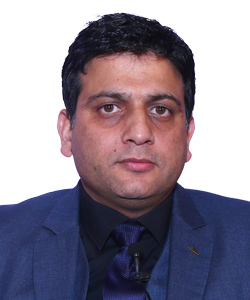Clarity from the Intellectual Property Appellate Board is required to lessen tensions between music labels and broadcasters, writes Sachin Kalra
The relationship between radio broadcasters and music labels has always been contentious, due to rights and royalty issues. Although the Supreme Court has tried to settle royalty disputes, in cases such as CISAC v Aditya Pandey (2016), the litigation between the two sides has seen an increase due to the non-functioning of the Intellectual Property Appellate Board (IPAB), which was earlier known as the Copyright Board, until 2016. The IPAB is vested with the power under the Indian Copyright Act to deal with compulsory and statutory licensing issues.

After the Copyright Amendment Act, 2012, the then Copyright Board was to be reconstituted, but despite directions from various high courts, this was not done on time. Proper functioning of the IPAB could have addressed the royalty dispute issues between the radio broadcasters and music labels. Compulsory licence applications pending since 2010 are yet to be heard by the IPAB. During this period of non-functioning, aggrieved parties have approached the high court under writ jurisdiction for redressal. However, the high court has refrained from passing any order that transgresses the law or sets an inappropriate precedent.
Ownership of copyright
A copyright is a right in an original work of authorship such as literary, musical, artistic, photographic, a film or computer program fixed in any tangible medium of expression, giving the holder the exclusive right to reproduce, distribute, adapt, display and perform the work. Prior to the 2012 amendment, the Supreme Court, in ENIL v Super Cassette Industries Ltd (2008) observed that a copyright is a property right that is parallel to the right to property under article 300A of the constitution, and is subject to reasonable restrictions. It is also a natural extension of the freedom of speech, and expression protected under article 19(1)(a) of the constitution.
It is necessary to identify the copyright owner in order to know who has the right to license use of the copyright, whose rights are to be protected, and who has the power to take action for infringement. The author of the work is the first owner of the copyright, with the exception being when the author is an employee, or the author has a contract of service.
You must be a
subscribersubscribersubscribersubscriber
to read this content, please
subscribesubscribesubscribesubscribe
today.
For group subscribers, please click here to access.
Interested in group subscription? Please contact us.
你需要登录去解锁本文内容。欢迎注册账号。如果想阅读月刊所有文章,欢迎成为我们的订阅会员成为我们的订阅会员。
Sachin Kalra is the deputy general counsel (group) at HT Media. The views expressed in the article are personal.



























